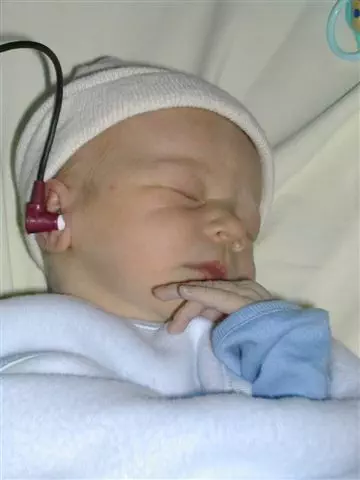
- The facts and stats
- Causes of new born hearing loss
- Hearing screening benefits
- Hearing screening process
Below are some common causes of new born hearing loss:
· Craniofacial anomalies, including abnormalities of the pinna and ear canal
· Family history of childhood hearing loss
· Neonatal intensive care unit admission for more than two days
· Neonatal jaundice, rubella or other fetal infection (e.g., herpes, cytomegalovirus)
· Syndromes associated with hearing loss (e.g., Down’s syndrome, Waardenburg’s syndrome)
Research however suggests that 50% of babies born with a hearing loss are healthy and have no known risk factors for hearing loss.
If screening is not done, the risk is that infant hearing loss may only be identified after critical developmental periods for language acquisition have passed. The far-reaching effect of late identification is evident in poor linguistic, cognitive, and socio-emotional development, which undermines literacy skills, academic achievement and ultimately educational and vocational outcomes.
The benefits of early detection and intervention are dramatic. Accessing the critical developmental periods for language acquisition during the first year of life through early detection, followed by personal amplification with the most appropriate means for the infant and subsequent family-centred intervention, may offer children developmental outcomes comparable to those of their hearing peers. So important is this early detection that the South African government has highlighted EHDI (Early Hearing Detection and Intervention) and ECI (Early Childhood Intervention) in the National Developmental Plan of the country.
Hearing screening can be done in the wards before the baby is discharged. Conducting the screening on day 3 or day 4 of life is much quicker, easier and more cost-effective than at a later stage. Otoacoustic Emissions are used whereby a probe is gently placed in the baby’s ear and frequency specific tones are presented. The machine then picks up the baby’s response to the presented sound and would provide a result of Pass or Refer. A Pass implies that the auditory pathway up to the cochlea (organ of hearing) is intact and functioning appropriately. Refer implies that there may be some hearing difficulties. Further testing may be recommended accordingly. The test is quick, painless and costs R370.00.
If you have given birth at Netcare Park Lane Hospital, a hearing test can be done within the ward before mom and baby is discharged.
Appointments
All patients are seen on an appointment basis. Should you wish to make a booking, please contact our receptionists on
(011) 482-5530 and they will assist you in finalising a suitable date and time,
Alternatively, click on the button below.
